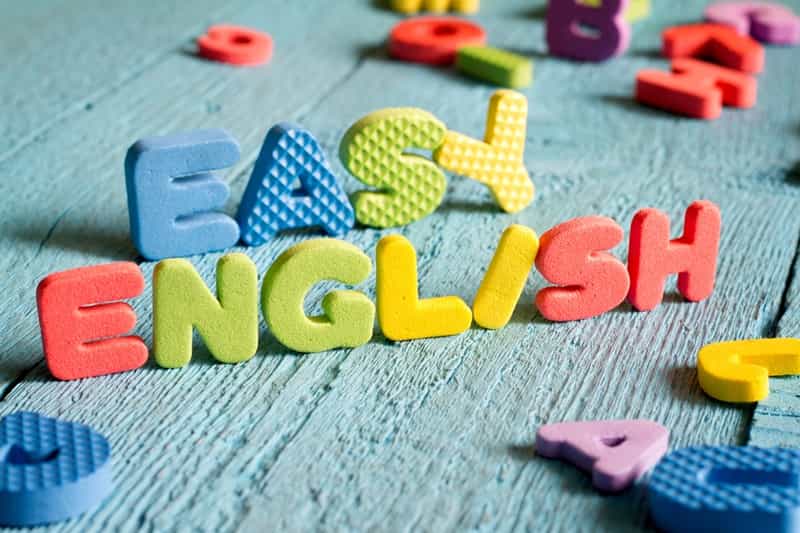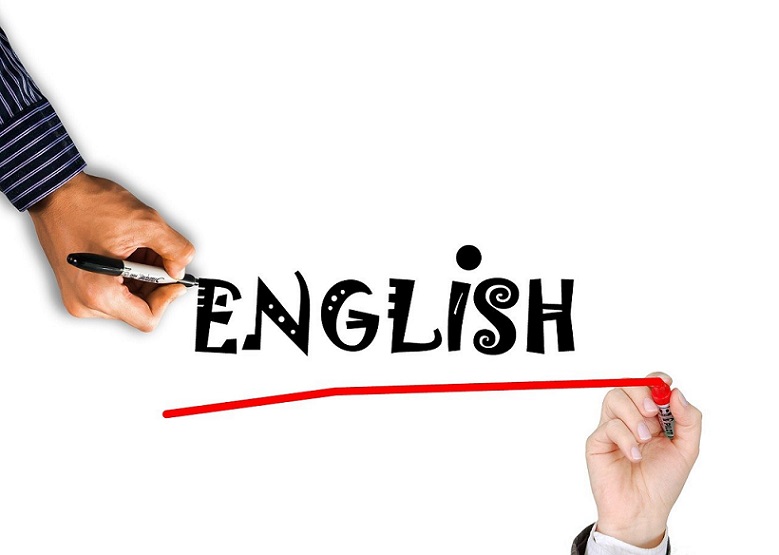
5 reasons to learn English YouTube
subject + used to + infinitive. subject + did + not + used to + infinitive. Did + subject + used to + infinitive. Examples with negatives and questions: Craig didn't used to speak German, but now he is fluent! He studied for five years. I didn't used to like vegetables. Now I love having salad with my meals.

How to Learn English Vocabulary Easily. 5 Tips for Learning New Words in English at www
Verbals are the most confusing sections in English grammar. This English lesson outlines the difference between "used to" and "I'm used to". I'm used to hearing ESL students (confusing )these two, so watch this lesson and learn the difference! Looking forward to hearing from you. Mohsen. [email protected].

Learning English Blog In2English
The answer is, in several different ways! In this lesson, I will explain how to use this common verb, with lots of examples from everyday English. We will also look at the difference between.

How to Learn English Fast in 5 Easy Steps
Buddy up with an English speaker who is learning your native language. If you don't know anyone, try downloading a language exchange app. Schedule 1-on-1 online classes with an English tutor to get expert advice on your English-speaking skills. Use English-learning apps with speech recognition software.

Learn English Grammar USE, USED, and USED TO YouTube
The structure used to + infinitive is used to refer to a past routine or situation which no longer exists at the present time. It refers to past habits and states that do not exist today; something that you did regularly in the past but you don't do now. 'Used to + infinitive' can only refer to a past time. I used to smoke - There was a.

7 Tips To Learn English Quickly And Easily
In this situation we use this expression: 'I will never get used to sushi.'. Before we move on, we should review: I am used to… = It was uncomfortable and strange, but now it's fine. I am getting used to… = It's still a little uncomfortable and strange, but it's getting better. I can't get used to… = It is still strange and will be in the.

Learn English in the UK A Practical Guide Study in UK
It would mean we refused to go out much. !Note - The general rule is when there is did or didn't in the sentence, we say use to (without d) when there is no did or didn't in the sentence, we say used to (with d ). There is also a difference between "used to do something and to be used to something". More English Grammar.

How To Learn English Quickly 12 Best Methods English Finders
Using 'would' instead of 'used to'. 1) We can use 'would' to describe past habits or actions. He used to play tennis on Saturdays = He would play tennis on Saturdays. 2) We can also use 'would' to describe repeated states in the past that were temporary. I always used to worry about exams = I would always worry about exams.

Used to Learn english, English grammar, English vocabulary
Used To Do / Would Do / Be Used To Doing Perfect English Grammar Download this explanation about 'used to' in PDF. 'Used to + infinitive': We use this expression to talk about habits or repeated actions in the past which we don't do in the present. We also use it to talk about states in the past which are no longer true. For example:

How to learn English
be used to and get used to Be used to means 'be familiar with' or 'be accustomed to'. She's used to the city now and doesn't get lost any more. He wasn't used to walking so much and his legs hurt after the hike. I'm a teacher so I'm used to speaking in public. We use get used to to talk about the process of becoming familiar with something.

How to Learn Speaking English Fluently at home
We use used to + verb for talking about states or actions that were true or happened in the past, but are not true or do not happen now. Can you give me some examples? Yes, of course. London's nothing like it used to be! She used to go away on really long trips. OK. So now she doesn't go away on really long trips? Exactly.

The Best Way to Learn English for Better Opportunities A Comprehensive Guide Shaw Academy
Vocabulary. Used to is commonly applied to either speak of a past habit or a situation we are accustomed to. However, the structure that follows 'used to' will be determined by the intended meaning. For example: used to + infinitive = past habit. For example: I used to smoke but not now. Verb to be + used to + gerund = an accustomed situation.

How To Learn English Fast And Easy At Home
The important part is that "used to" must be pronounced /yustə/, with an /st/, not a /zd/. This is true for the past terminative idiom in this example, and also for the different idiom be used to, meaning 'be accustomed to', as in the second clause in I used to have trouble sleeping, but now I'm used to the train whistles in the night.

Learning English Best Ways To Learn To Speak Fluent English
Past habits: 'used to', 'would' and the past simple Do you know how to talk about past habits using used to, would and the past simple? Test what you know with interactive exercises and read the explanation to help you. Look at these examples to see how used to, would and the past simple are used. They used to live in London.

5 Best Ways to Learn English Reviews of 2023
use to uses to used to using to. To talk about something done in the past but not done now, we use: being used to being use to use to used to. My father _______ smoke, but then he had health problems and had to stop. Bdeep123. I'm not used to use a useful method but I'm getting used to use Engvid .

How To Learn English for FREE Beginner Tutorial YouTube
Open unit selectorClose unit selectorUnit 23 Becoming familiar with things. Select a unit. 1 Pop-ups. 2 Hidden talents. 3 Can't buy me love. 4 Travellers' tales. 5 The colleague from hell. 6.